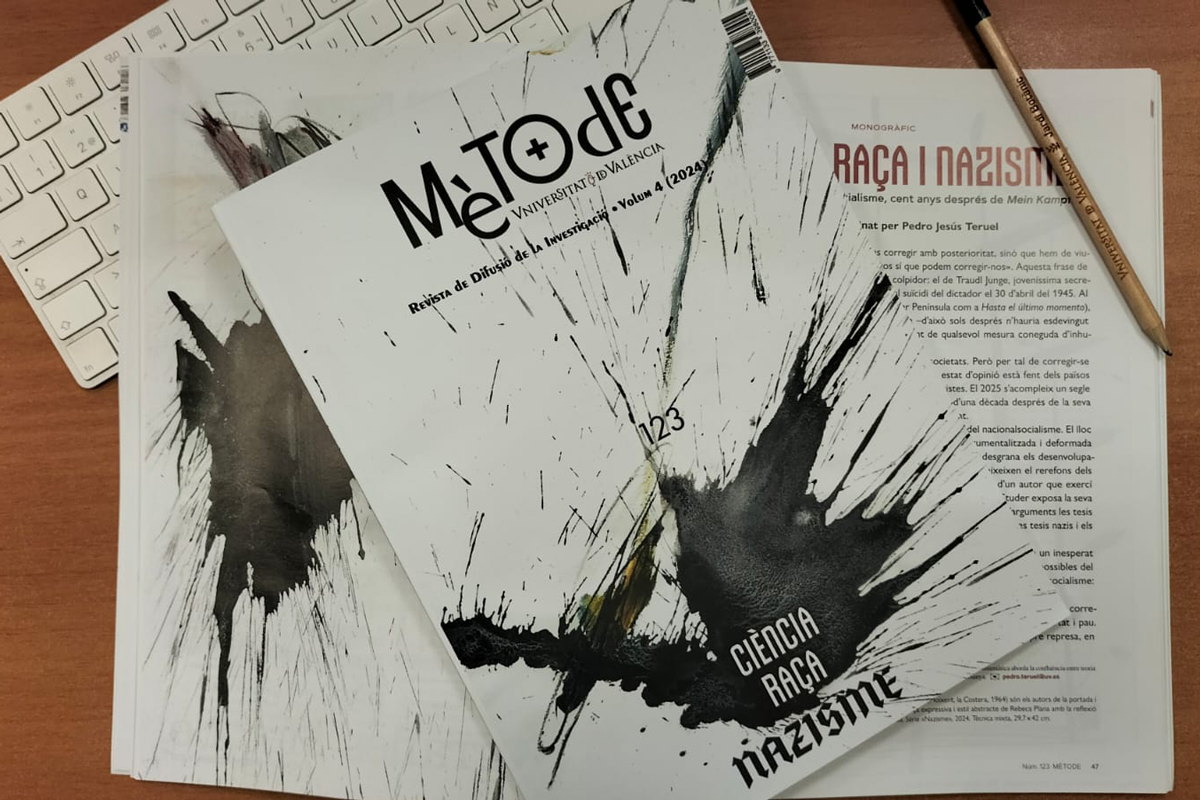Science, race and Nazism
The origins of National Socialism, 100 years after Mein Kampf

«We cannot put our lives right in retrospect; we must go on living with the past. We can put ourselves right, however». This sentence by Reiner Kunze opens a powerful testimony: that of Traudl Junge, Adolf Hitler’s very young secretary from December 1942 until the dictator’s death on 30 April 1945. In her book Bis zur letzten Stunde (published in English as Until the final hour: Hitler’s last secretary), Junge recounts how she gained access to the intimate circle of a man who – she would later realise – had committed monstrous acts beyond any known measure of inhumanity.
This statement can be applied to the history of societies. But in order to put ourselves right, we need to be aware of what has happened and what is happening. A growing public opinion is turning Western countries back to the ideological theses of fascism. This has been substantiated by the Rassemblement National party in France, Alternative für Deutschland in Germany, the PVV in the Netherlands, the FPÖ in Austria, or VOX and SALF in Spain. Despite their differences, these parties make immigration the scapegoat; they reject the big picture with regard to ecological problems or common defence policies in favour of pursuing impossible autarchic frameworks; they weave alliances in which partners such as Donald Trump and Javier Milei, spokespersons for disturbing anti-democratic impulses, occupy privileged positions.
Two elections this year have shown the strength of the far right. On 9 June, the European elections evidenced the rise. On 1 September, in the German regional elections in Thuringia and Saxony, the extremist flame reached levels unseen since World War II; the results were quite striking among people under 25, 38% of whom supported the far right. Endemic problems such as access to housing, the brutal conditions of agricultural labour, or the erosion of public services fuel the crisis. Mixed in is the role of fake news – spread openly on social media – in the perception of sensitive issues such as immigration. Several of these variables mirror the currents of opinion that gave rise to Nazism. The year 2025 marks a century since the publication of Adolf Hitler’s manifesto, Mein Kampf (‘My struggle’). Less than a decade later, Hitler’s vision had become a frightening reality.
These articles deal with the ideological roots of National Socialism. The monograph focuses on its links with natural science, which was instrumentalised and distorted in the service of the pseudo-scientific doctrine of race. In «Rasse a los Grundlage völkischer und nationalsozialistischer Geschichtsschreibung. Vorbedingungen und Entwicklungen im 19. und frühen 20. Jahrhundert», Othmar Plöckinger (Salzburg) unravels the developments in the scientific paradigms of the 19th and early 20th century that formed the background to Nazi racial approaches. In «Sources of the Nazi Racial Ideology», Herlinde Pauer-Studer (Vienna) gives her perspective on the literary, anthropological and scientific sources that provided arguments for the National Socialist racial thesis. In «Hitler und der „Seher des Dritten Reichs“. Houston Stewart Chamberlain a los Vordenker des Nationalsozialismus», Barbara Zehnpfennig (Pasáis/Berlin) examines the systemic position of an author who had a direct influence on the shaping of Hitler’s forma mentis. In «A “World of Struggle”», a critical analysis of the conceptual nexus between the National Socialist doctrine on race and Darwinian evolutionary biology, Pedro Jesús Teruel (Valencia) tackles the alleged connection between the Nazi theses and the ideas of Charles R. Darwin, revealing the implicit fallacies.
Halfway between Germany, Spain, and Austria – where the Anschluss placed biology under an unexpected intellectual leadership – these questions are thought-provoking. They allow us to deepen one of the references of the monograph that Metode SSJ dedicated in 2019 to the collaboration of scientists with Nazism: «Science and Nazism».
We cannot put our lives back in retrospect; we can put ourselves right, however. We must renew our awareness of our past in order to contribute to a future of freedom and peace. I hope that these pages can help in this endeavour: it is a never-ending task; one that each new generation must continue to build on.





